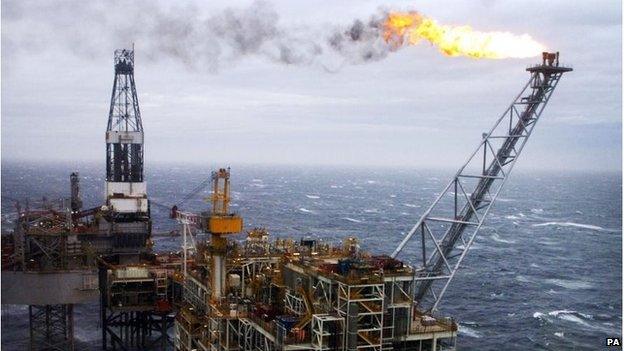Cheer or boo for low inflation?
- Published
- comments

Falling oil prices have fed into low inflation
If official inflation falls below 1% tomorrow, which seems more-or-less certain, would that matter?
It matters in a symbolic sense in that it would be the first time, since the Bank of England was given control over interest rates, that it has missed the target on the downside.
Although it missed the target on the upside (that is inflation was over 3%) for month after pricey month from May 2008 to February 2009 and then from the beginning of 2010 to April 2012 (when it was at 3% or less only once).
To labour the point (as is my wont, yawn) it would be the first time that the rules put in place by Gordon Brown as Chancellor would oblige the Governor to write a letter explaining why inflation is too low - and what he and his colleagues intend to do about it.
But the more important question is whether inflation at less than 1% is actually bad for us - given that the implication of the Bank of England's mandate, that inflation should not be more than 1 percentage point above or below 2%, suggests it would be bad.
Well, the big reason that inflation has been falling - falls in food and oil-linked prices - should be good for most consumers and businesses, in that we have to buy these things and the drops make our money go further.
The lower prices are the equivalent of a chunky tax cut.
So in theory they will encourage us to spend more, and thus provide positive momentum for the economy, to offset - inter alia - the drag from the stagnating eurozone.
That said, there is also very little inflation in categories of discretionary spending, such as recreation, culture, clothing and furniture.
And, as I mentioned last week, we are likely to start shipping in deflationary pressures from the eurozone, as the European Central Bank responds to falling prices there by weakening the euro - which means we will pay less for imports from our important eurozone trading partners, external.
The point is that inflation is likely to remain well below target for many months, and if we all started to defer discretionary spending in the hope of buying cheaper later, falling inflation could turn into deflation and slump.
So although there is no chance in the immediate future of the Bank of England responding to "too low" inflation by further monetary stimulus or action to cheapen the cost of money - through further quantitative easing, for example - it will need to be vigilant that we don't turn Japanese, that we don't turn into an endemically stagnating economy.